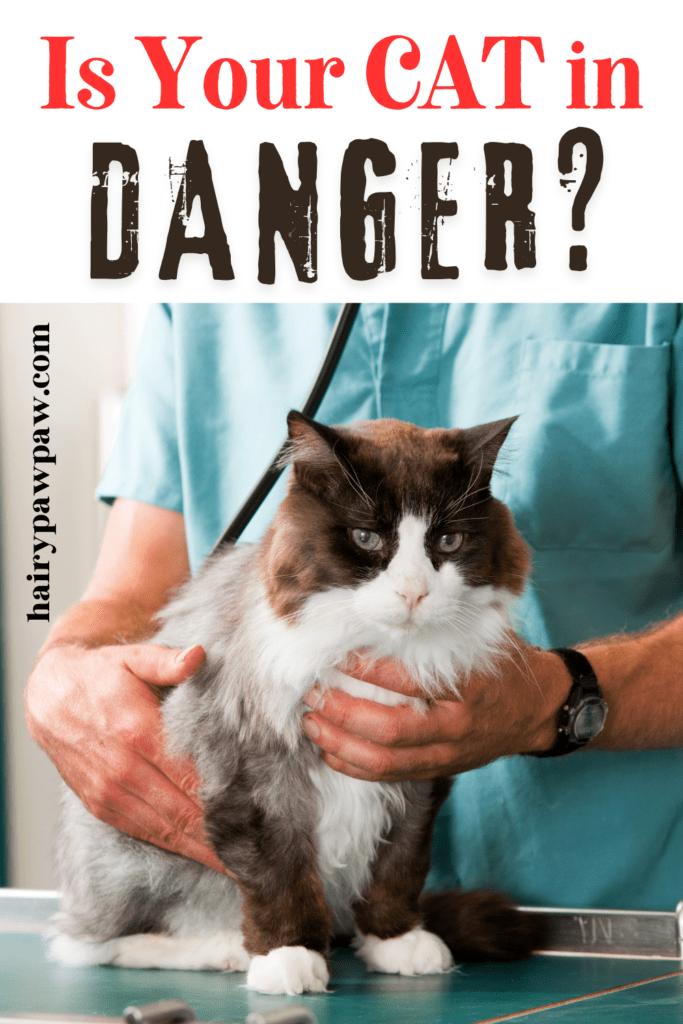Siamese Cat Health Issues: Everything You Need to Learn
This post may contain affiliate links, which means I’ll receive a commission if you purchase through my link, at NO EXTRA COST TO YOU
Siamese cats, with their striking blue eyes and sleek coats, are among the most popular and recognizable cat breeds. While these cats are known for their intelligence, vocal nature, and affectionate personalities, they also come with specific health concerns that every Siamese cat owner should be aware of. Understanding these health issues is crucial in ensuring that your Siamese cat lives a long, healthy, and happy life. This comprehensive guide will delve into the common health problems associated with Siamese cats, preventive care, and how to recognize early signs of illness. By staying informed and proactive, you can better manage your cat’s health and wellbeing.

Respiratory Issues
One of the most common health problems in Siamese cats is related to their respiratory system. Due to their distinctive head and facial structure, Siamese cats are prone to respiratory issues. For instance, some Siamese cats suffer from chronic respiratory problems such as asthma or bronchitis. These conditions can cause symptoms like wheezing, coughing, and difficulty breathing.
To manage these respiratory issues, it is essential to monitor your cat closely for any signs of breathing difficulties. Additionally, maintaining a clean living environment can help reduce the risk of respiratory infections. Because dust, mold, and allergens can trigger respiratory problems, regular cleaning and air purification in your home are vital. If your Siamese cat shows any signs of respiratory distress, immediate veterinary attention is necessary to prevent complications.
Progressive Retinal Atrophy (PRA)
Progressive Retinal Atrophy (PRA) is another health issue that affects Siamese cats. This genetic condition leads to the gradual degeneration of the retina, eventually resulting in blindness. Although there is no cure for PRA, early detection and management can help slow its progression.
Regular eye check-ups with your veterinarian are crucial in identifying PRA early. If your Siamese cat is diagnosed with this condition, you can make adjustments to your home to help them navigate their environment more easily. For example, keeping furniture in consistent locations and using textured rugs can help your cat find their way around even as their vision deteriorates. In addition, providing plenty of light in your home can also aid in maintaining their comfort and confidence.
Dental Issues
Siamese cats are also prone to dental problems, such as gingivitis and periodontal disease. These conditions can cause pain, tooth loss, and even systemic infections if left untreated. Regular dental care is essential to prevent these issues from developing.
For instance, brushing your Siamese cat’s teeth regularly helps remove plaque and prevent tartar buildup. It’s also important to schedule regular dental check-ups with your veterinarian. In addition, providing dental treats or toys specifically designed to promote oral health can also be beneficial. Because dental issues can cause significant discomfort, it’s important to monitor your cat for signs of dental pain, such as drooling, difficulty eating, or pawing at their mouth.
Gastrointestinal Problems
Gastrointestinal issues are another concern for Siamese cats. They may experience conditions such as inflammatory bowel disease (IBD), food allergies, or sensitivities. These issues can lead to symptoms like vomiting, diarrhea, and weight loss.
To manage gastrointestinal problems, it’s important to provide your Siamese cat with a high-quality, balanced diet. Some cats may require a special diet formulated to address their specific digestive needs. Additionally, feeding your cat smaller, more frequent meals can help reduce the likelihood of digestive upset. If your Siamese cat shows signs of gastrointestinal distress, consult with your veterinarian to determine the underlying cause and appropriate treatment.
Heart Disease
Heart disease is another health issue that can affect Siamese cats. Hypertrophic cardiomyopathy (HCM), a condition where the heart muscle thickens, is particularly common in this breed. This condition can lead to heart failure if not managed properly.
Because early detection is key in managing heart disease, regular veterinary check-ups, including heart evaluations, are important for Siamese cats. If your cat is diagnosed with HCM or another heart condition, your veterinarian may recommend medications, dietary changes, and lifestyle modifications to help manage the disease. Monitoring your cat for signs of heart disease, such as lethargy, rapid breathing, or coughing, is also crucial for early intervention.
Liver Disease
Siamese cats are also more susceptible to liver diseases, such as hepatic lipidosis and cholangiohepatitis. These conditions can result in symptoms like jaundice, weight loss, and vomiting.
Preventive care, such as maintaining a healthy weight and providing a balanced diet, is essential in reducing the risk of liver disease. Because stress and sudden changes in diet can contribute to liver issues, it’s important to manage these factors carefully. Regular blood tests and liver function tests can help detect early signs of liver disease, allowing for prompt treatment.
Amyloidosis
Amyloidosis, a condition where abnormal proteins called amyloids accumulate in organs such as the liver and kidneys, is another health issue that can affect Siamese cats. This condition can lead to organ failure if not managed properly.
Because amyloidosis is a genetic condition, there is no way to prevent it entirely. However, regular veterinary check-ups and blood tests can help detect the condition early. If your Siamese cat is diagnosed with amyloidosis, your veterinarian may recommend a treatment plan to manage the symptoms and slow the progression of the disease.
Hyperesthesia Syndrome
Hyperesthesia syndrome is a neurological condition that affects some Siamese cats. This condition causes episodes of intense sensitivity to touch, leading to symptoms such as skin rippling, excessive grooming, and sudden bouts of agitation.
Managing hyperesthesia syndrome often involves reducing stress in your cat’s environment. Providing plenty of enrichment, such as toys and interactive play, can help alleviate stress and prevent episodes. Additionally, your veterinarian may recommend medications or behavioral therapy to help manage the condition. Because hyperesthesia syndrome can be challenging to diagnose and treat, it’s important to work closely with your veterinarian to develop an effective management plan.
Conclusion
In conclusion, while Siamese cats are generally healthy and robust, they are prone to certain health issues that require careful attention and proactive care. By understanding these common health problems and taking steps to manage them, you can help ensure that your Siamese cat lives a long, healthy, and happy life. Regular veterinary check-ups, a balanced diet, proper dental care, and a stress-free environment are all crucial components of maintaining your Siamese cat’s health. With the right care and attention, your Siamese cat will remain a loving and vibrant companion for many years to come.
© Copyright 2024. All rights reserved.








